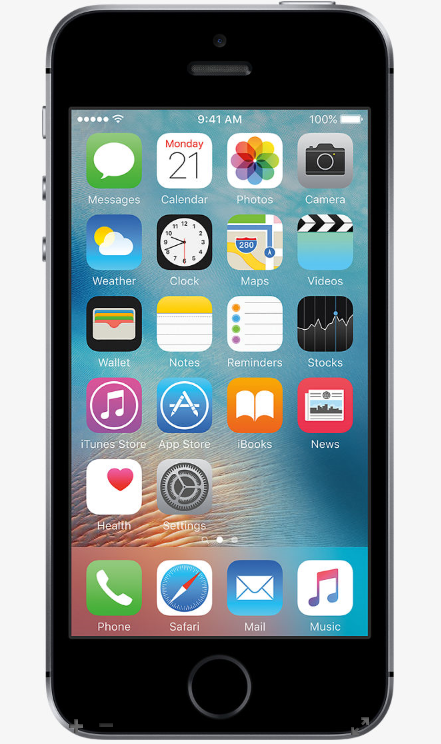 Smart Phones, Social Media and our Psyche: Three things to know about the technical marvel in your pocket.
Smart Phones, Social Media and our Psyche: Three things to know about the technical marvel in your pocket.
Smart phones and kids have been in the news a lot lately. The Atlantic cover story reads Has the Smartphone Destroyed a Generation ? https://www.theatlantic.com/magazine/archive/2017/09/has-the-smartphone-destroyed-a-generation/534198/ Similarly, Frank Foer’s new book is entitled World without Mind: The Existential Threat of Big Tech. http://www.latimes.com/books/la-ca-jc-world-without-mind-20170912-story.html Other smartphone research reveals that teen suicide rates are up 50% and that young people are becoming both more isolated and less physically active.
It’s important to understand that the impact of the technological innovation is not limited to kids. The combined impact of having portable, 24/7 access to the internet and the interactivity of social media affects us all. The integration of information, communication and entertainment in a portable device is fundamentally changing how we access and perceive the world. To be sure, having information instantly available at our fingertips has helped in many ways, from getting a taxi to getting directions to a new restaurant.
Unquestionably, this technology has made life easier and provided us with more choices. But there are two profound perceptional and psychological implications of which we must be aware. The danger lies not simply in the fact that smart phones have become an indispensable part of our lives or even that we have become dependent on them. A significant concern is the subtle ways that these devices, in conjunction with advertising and social media, shape and narrow the world we experience and even affect our self-esteem. Specifically, we need to be aware of 1) the implications of having so much information on file about us ; and 2) how vulnerable we are to the interactive feedback received from social media.
Through the massive data collection companies amass through internet tracking, it is fair to say that they know us (our tastes and preferences) better than we know ourselves and … that they use that data to manipulate us and narrow our capacity for considering other options. As Frank Foer writes: “The tech companies are destroying something precious, which is the possibility of contemplation”. We not only become addicted to the constant information and feed-back provided by our phones, our field of vision also becomes limited and severely narrowed. The ads which constantly appear are not randomly chosen but are chosen by preferences we have expressed through on-line purchases ,clicks on web pages and “likes”. Of course it is more convenient not to have to “waste” time searching for something we can’t find. However, by “saving” time we also sacrifice the possibility of serendipity and unplanned discovery which is terribly important for creativity and innovation.
While being in touch with “friends” on social media is exciting and fun, it is also increasingly stressful. One explanation of the correlation between the introduction of smart phone and the increase in teen suicide statistics has to do with the ongoing stress of constantly being evaluated by the feedback loop of social media and not measuring up to the imposed expectations of having to be “liked” or commented on for postings. Teens are particularly vulnerable to both criticisms. The dreadful effects of cyber-bullying are well documented. Likewise, being ignored, not “liked” or , worst, being defriended can also be stressful and depressing effects. Adults are affected by these same pressures too.
Understanding the pitfalls and dangers of using smartphones doesn’t mean that we have to give them up. Being mindful is what is needed. Here are some tips to help you deal with smartphones and social media successfully and to help you avoid being manipulated by them:
1. Don’t be limited to ad recommendations. Be aware of the corporate/financial motivation behind ads and don’t let yourself become too limited. When you see an ad, it is important to acknowledge that, even though you may like the suggested product or service, there are other choices available. From time to time it is a good thing to challenge the recommendations and simply ask yourself: How long has it been since I’ve tried something new ?
2. Don’t take social media feed-back too seriously It is important to remember that, while we all need positive feedback and affirmation, the posts that you want to share need to be done to express what you are feeling and not simply to get praise or compliments. Since you may not really know your “friends” on social media and they don’t really know you. The relative anonymity of the internet lowers civility and promotes nastiness. Keep in mind that you do not know the real motivation or meaning behind a failure to respond or negative response. It most likely has very little to do with you at all.
3. Remember that the best sources of affirmation and praise come from people we know and relate to in person. If you realize that your world has shrunken and you don’t see your friends the way you used to, challenge yourself to reach out and contact someone you care about or think of ways of meeting new people and making new friends.
Rev. Michael Heath, LMHC, Fellow AAPC 9 19 2017



